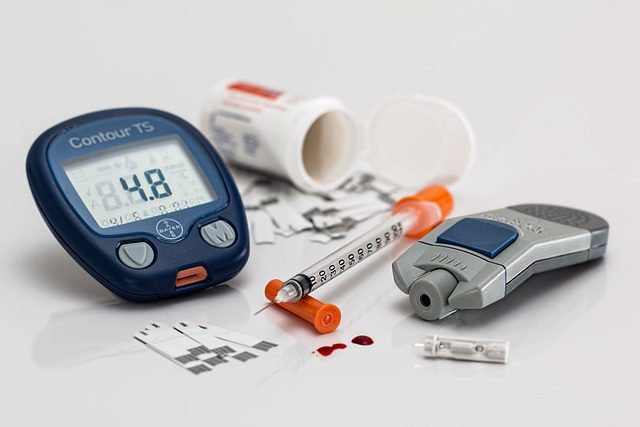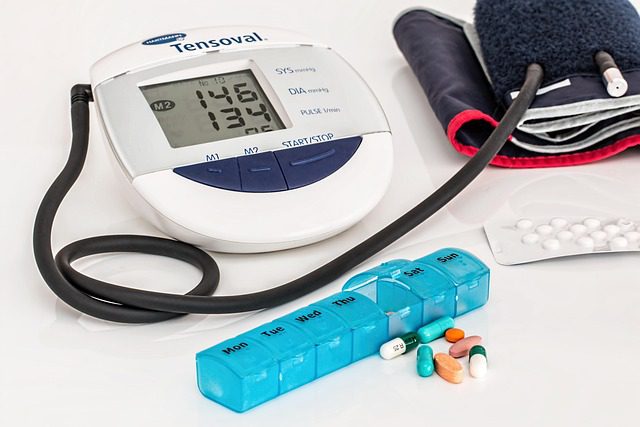Discover why you’re always tired despite sleeping enough. Learn 12 hidden causes of chronic fatigue and science-backed solutions that work.
Emma stared at her computer screen, willing herself to focus on the spreadsheet in front of her.
It was only 2 PM, but she felt like she’d been awake for 20 hours. She’d gotten her full eight hours of sleep, eaten a decent breakfast, and had her usual morning coffee.
Yet here she was again, fighting the overwhelming urge to put her head down on her desk.
“I’m only 28,” she thought. “Why am I always so exhausted?”
Emma’s story isn’t unique. Despite sleeping what seems like adequate hours, millions of people struggle with persistent fatigue that affects their work, relationships, and quality of life. If you find yourself constantly tired despite your best efforts to get enough sleep, you’re not alone—and more importantly, there are solutions.
The truth is that chronic fatigue isn’t just about sleep quantity. It’s a complex issue involving your sleep quality, lifestyle choices, underlying health conditions, and environmental factors that most people never consider.
>>Morning Habits to Stay Focused and Energized All Day
Understanding the Fatigue Epidemic
Recent studies reveal that 76% of Americans report feeling tired most days of the week. Even more concerning, 15.3% of women and 10.1% of men experience chronic fatigue that significantly impacts their daily lives. This isn’t just about being “a little sleepy”—it’s about persistent exhaustion that doesn’t improve with rest.
The modern lifestyle has created what researchers call “energy debt”—a state where your body’s energy demands consistently exceed its ability to restore and regenerate.
Unlike previous generations who had natural energy cycles tied to daylight and seasons, we’re constantly overstimulated, undernourished, and out of sync with our biological rhythms.
The Hidden Causes of Chronic Fatigue

1. Poor Sleep Quality (Not Just Quantity)
Marcus thought he was doing everything right. He went to bed at 10 PM and woke up at 6 AM religiously. Yet he felt exhausted every morning. A sleep study revealed that despite spending eight hours in bed, he was only getting 4-5 hours of quality sleep due to frequent wake-ups he didn’t remember.
The real issue: Sleep quality matters more than quantity. You need adequate time in deep sleep and REM sleep for true restoration.
Hidden sleep disruptors:
- Room temperature above 68°F (20°C)
- Blue light exposure within 2 hours of bedtime
- Caffeine consumption after 2 PM
- Irregular sleep schedules, even on weekends
- Sleep apnea (affects 22 million Americans)
- Restless leg syndrome
- Chronic pain or discomfort
Solutions that work:
- Keep bedroom temperature between 65-68°F (18-20°C)
- Use blackout curtains or eye masks
- Install blue light filters on devices after sunset
- Maintain consistent sleep/wake times (even weekends)
- Consider a sleep study if snoring or breathing interruptions occur

2. Nutrient Deficiencies: The Silent Energy Thieves
Jennifer ate what she considered a healthy diet, but constant fatigue plagued her daily life. Blood tests revealed severe iron deficiency anemia, vitamin D deficiency, and low B12 levels. Within three months of targeted supplementation and dietary changes, her energy levels transformed completely.
Common energy-draining deficiencies:
- Iron deficiency: Affects 25% of women globally
- Vitamin D: Deficient in 40% of Americans
- Vitamin B12: Particularly common in vegetarians and people over 50
- Magnesium: Deficient in 80% of Americans
- Thyroid hormones: Often overlooked in standard tests
Warning signs of deficiencies:
- Iron: Cold hands/feet, brittle nails, craving ice or starch
- Vitamin D: Bone pain, frequent infections, depression
- B12: Tingling in hands/feet, memory problems, balance issues
- Magnesium: Muscle cramps, anxiety, irregular heartbeat
Action steps:
- Get comprehensive blood work including ferritin, vitamin D, B12, and thyroid panel
- Focus on nutrient-dense foods rather than supplements alone
- Work with healthcare providers for proper testing and treatment
>>Top 7 Brain-Boosting Foods for Better Memory and Focus

3. Blood Sugar Rollercoaster
Alex started tracking his energy levels and discovered a pattern: he felt energized after meals but crashed 2-3 hours later. His breakfast of toast and juice was spiking his blood sugar, followed by a dramatic drop that left him exhausted and craving more sugar.
How blood sugar affects energy: When you eat high-sugar or refined carbohydrate foods, your blood glucose spikes rapidly. Your pancreas releases insulin to bring it down, often overcorrecting and causing blood sugar to drop below normal levels. This crash triggers fatigue, irritability, and cravings for more sugar, creating a vicious cycle.
Blood sugar stabilizing strategies:
- Eat protein with every meal and snack
- Choose complex carbohydrates over simple sugars
- Include healthy fats to slow glucose absorption
- Eat smaller, more frequent meals
- Avoid sugary drinks and processed foods
Meal examples for stable energy:
- Breakfast: Greek yogurt with berries and nuts (not just cereal)
- Lunch: Quinoa salad with grilled chicken and avocado
- Snack: Apple with almond butter (not just the apple)
- Dinner: Salmon with sweet potato and vegetables

4. Dehydration: The Overlooked Energy Killer
Sarah didn’t think she was dehydrated—she drank coffee, tea, and the occasional glass of water. But when she started tracking her actual water intake, she discovered she was consuming less than 32 ounces of pure water daily. Within a week of proper hydration, her afternoon energy crashes disappeared.
Why dehydration causes fatigue: Even mild dehydration (2% body weight loss) can reduce physical performance by 25% and cognitive function by 10%. Your blood becomes thicker, forcing your heart to work harder to pump oxygen and nutrients to your cells.
Hydration guidelines:
- Drink half your body weight in ounces of water daily
- Start each day with 16-20 ounces of water
- Drink water before you feel thirsty
- Monitor urine color (pale yellow is ideal)
- Increase intake during exercise, hot weather, or illness

5. Chronic Stress and Cortisol Dysfunction
Michael’s demanding job kept him in a constant state of stress. His cortisol levels remained elevated throughout the day, preventing proper sleep and recovery. Eventually, his adrenal glands became exhausted, leading to both high cortisol (anxiety, insomnia) and low cortisol (fatigue, brain fog) at different times.
How chronic stress creates fatigue: Prolonged stress keeps your body in “fight or flight” mode, constantly releasing stress hormones that drain your energy reserves. Over time, this leads to adrenal fatigue, disrupted sleep, and compromised immune function.
Stress management strategies:
- Practice deep breathing exercises (4-7-8 technique)
- Incorporate regular meditation or mindfulness
- Set boundaries between work and personal time
- Engage in regular physical activity
- Consider adaptogenic herbs like ashwagandha or rhodiola
>>Top 5 Supplements to Boost Energy and Focus in 2025

6. Sedentary Lifestyle Paradox
Lisa thought exercise would make her more tired, so she avoided it when feeling fatigued. However, her sedentary lifestyle was actually contributing to her exhaustion. When she finally started a gentle walking routine, her energy levels improved dramatically within two weeks.
Why inactivity causes fatigue: Regular movement improves cardiovascular health, enhances mitochondrial function (your cellular powerhouses), and boosts mood-regulating neurotransmitters. Sedentary behavior, on the other hand, reduces energy production at the cellular level.
Energy-boosting exercise guidelines:
- Start with 10-15 minutes of daily walking
- Incorporate strength training twice weekly
- Try energizing activities like dancing or swimming
- Avoid intense exercise close to bedtime
- Listen to your body and rest when needed

7. Technology Overload and Digital Fatigue
David spent 12+ hours daily staring at screens between work and personal devices. The constant blue light exposure, information overload, and electromagnetic fields were creating a subtle but persistent drain on his energy and focus.
Digital factors affecting energy:
- Blue light disrupts circadian rhythms
- Constant notifications create stress responses
- Poor posture from device use causes muscle tension
- Information overload exhausts cognitive resources
Digital wellness strategies:
- Use blue light filters after sunset
- Take regular breaks from screens (20-20-20 rule)
- Create device-free zones in your home
- Practice good posture and ergonomics
- Limit news and social media consumption

8. Food Sensitivities and Inflammation
Rachel experienced daily fatigue, brain fog, and digestive issues. An elimination diet revealed she had sensitivities to gluten and dairy. Removing these foods from her diet eliminated her chronic inflammation and restored her energy levels.
Common energy-draining foods:
- Gluten (wheat, barley, rye)
- Dairy products
- Processed foods with additives
- Excessive sugar and artificial sweeteners
- Foods high in omega-6 oils
Identifying food sensitivities:
- Keep a food and energy diary
- Try an elimination diet for 3-4 weeks
- Work with a healthcare provider for testing
- Focus on whole, unprocessed foods
- Pay attention to how foods make you feel

9. Environmental Toxins
Tom’s fatigue improved significantly after addressing mold in his home and switching to natural cleaning products. Environmental toxins can burden your liver and immune system, leading to chronic fatigue.
Common environmental energy drains:
- Mold and poor indoor air quality
- Chemical cleaners and personal care products
- Heavy metals (lead, mercury, aluminum)
- Pesticides and herbicides
- Air pollution and smog
Reducing toxic load:
- Use natural cleaning products
- Choose organic foods when possible
- Filter your drinking water
- Improve indoor air quality with plants
- Minimize exposure to heavy metals

10. Hormonal Imbalances
Maria’s fatigue coincided with irregular periods and mood swings. Testing revealed low thyroid function and hormonal imbalances that were significantly impacting her energy levels.
Hormones affecting energy:
- Thyroid hormones (T3, T4, TSH)
- Cortisol (stress hormone)
- Insulin (blood sugar regulation)
- Sex hormones (testosterone, estrogen, progesterone)
- Growth hormone
Signs of hormonal imbalance:
- Unexplained weight changes
- Irregular menstrual cycles
- Mood swings and depression
- Hair loss or changes in hair texture
- Sleep disturbances

11. Mental Health Factors
James struggled with mild depression and anxiety, which manifested primarily as physical fatigue rather than obvious emotional symptoms. Addressing his mental health through therapy and lifestyle changes significantly improved his energy levels.
Mental health and fatigue connection:
- Depression often presents as physical exhaustion
- Anxiety creates mental and physical tension
- Seasonal Affective Disorder (SAD) affects energy levels
- Chronic worry depletes cognitive resources
Supporting mental health:
- Consider professional counseling or therapy
- Practice stress-reduction techniques
- Maintain social connections
- Engage in activities you enjoy
- Consider light therapy for seasonal issues

12. Medication Side Effects
Linda’s blood pressure medication was causing daytime fatigue. Working with her doctor, she switched to a different medication and adjusted the timing, which eliminated her energy problems.
Common fatigue-causing medications:
- Blood pressure medications
- Antihistamines
- Antidepressants
- Sleep aids
- Pain medications
Working with medications:
- Review all medications with your healthcare provider
- Ask about alternatives if fatigue is an issue
- Consider timing adjustments
- Never stop medications without medical supervision
Creating Your Personal Energy Recovery Plan
Phase 1: Foundation (Weeks 1-2)
- Optimize sleep hygiene: Consistent bedtime, cool room, darkness
- Stabilize blood sugar: Eat protein with every meal
- Increase water intake: Track and gradually increase
- Basic stress management: Start with 5 minutes of deep breathing daily
Phase 2: Investigation (Weeks 3-6)
- Get comprehensive blood work: Include thyroid, vitamins, minerals
- Food sensitivity exploration: Keep a detailed food and energy diary
- Exercise gradually: Start with 10-15 minutes of walking
- Environmental assessment: Check for mold, improve air quality
Phase 3: Optimization (Weeks 7-12)
- Address identified deficiencies: Work with healthcare providers
- Fine-tune diet: Eliminate problem foods, add energy-supporting nutrients
- Expand exercise routine: Include strength training and variety
- Advanced stress management: Meditation, yoga, or counseling
Phase 4: Maintenance (Ongoing)
- Regular monitoring: Track energy levels and adjust as needed
- Preventive healthcare: Regular check-ups and screenings
- Lifestyle balance: Maintain healthy habits while allowing flexibility
- Continuous learning: Stay informed about energy and health
Red Flags: When to Seek Medical Attention
While lifestyle factors cause most chronic fatigue, certain symptoms warrant immediate medical evaluation:
- Sudden onset of severe fatigue
- Fatigue accompanied by fever, weight loss, or night sweats
- Chest pain or shortness of breath
- Severe depression or suicidal thoughts
- Fatigue that doesn’t improve with rest and lifestyle changes
- Symptoms of sleep apnea (loud snoring, gasping during sleep)
The Energy Transformation Timeline
Week 1-2: Basic improvements in sleep and hydration may provide initial energy boosts Week 3-4: Blood sugar stabilization begins to reduce afternoon crashes Week 5-8: Nutrient deficiencies start to correct with proper supplementation Week 9-12: Hormonal balance and stress management show significant benefits 3-6 months: Full transformation as all systems optimize together
Conclusion: Reclaiming Your Energy
Chronic fatigue isn’t a life sentence. By systematically addressing the multiple factors that contribute to energy depletion, you can restore your vitality and reclaim your life. The key is understanding that fatigue is rarely caused by a single factor—it’s usually a combination of lifestyle, nutritional, environmental, and health issues that compound over time.
Start with the foundational elements of sleep, nutrition, and hydration. These provide the biggest impact with the least effort. Then gradually investigate and address the more complex factors like hormones, food sensitivities, and environmental toxins.
Remember Emma from our opening story? Six months after implementing these strategies, she’s the colleague who others ask for energy tips. Her transformation didn’t happen overnight, but it did happen—and yours can too.
The journey to sustained energy is personal and unique to each individual. Be patient with yourself, celebrate small victories, and don’t hesitate to seek professional help when needed. Your energy is your most valuable resource—invest in it wisely.
This article is for informational purposes only and doesn’t replace professional medical advice. Always consult with healthcare providers before making significant changes to your diet, exercise routine, or medications.








